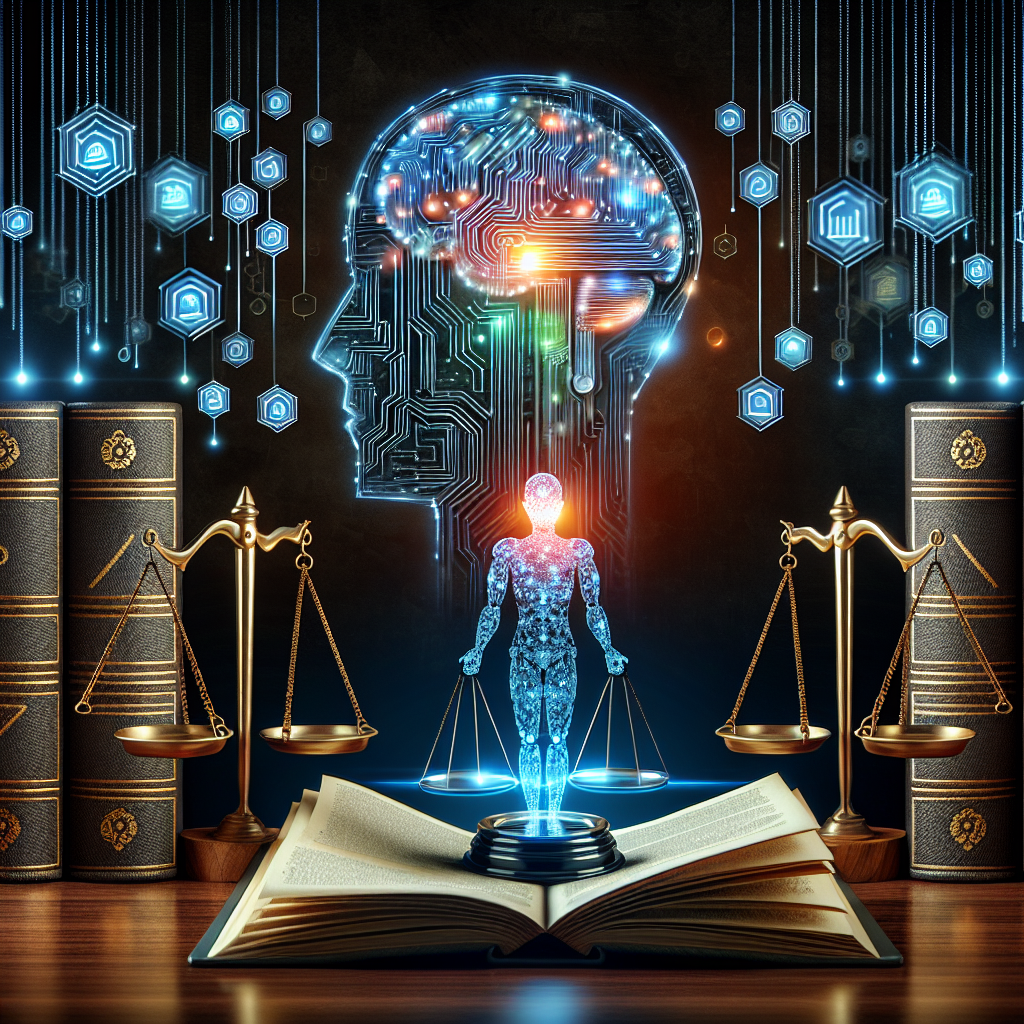Artificial Intelligence (AI) has been rapidly reshaping various industries, and the legal profession is no exception. With the advancement of technology, AI has the potential to revolutionize the way legal services are delivered, but it also raises ethical and professional responsibility concerns. In this article, we will explore the impact of AI on legal ethics and professional responsibility, and address some frequently asked questions on this topic.
AI in the Legal Industry
AI technology has the ability to automate many routine tasks in the legal industry, such as document review, due diligence, legal research, and contract analysis. This can significantly increase efficiency and reduce costs for law firms and legal departments. AI-powered tools can quickly analyze vast amounts of data and provide insights that would be impossible to uncover manually.
Moreover, AI can help lawyers make better decisions by predicting case outcomes, identifying patterns in legal documents, and spotting potential risks. This can lead to more accurate and informed legal advice, ultimately benefiting clients and enhancing the overall quality of legal services.
However, the widespread adoption of AI in the legal industry also raises important ethical and professional responsibility issues that need to be addressed.
Ethical Concerns
One of the main ethical concerns surrounding AI in the legal profession is the potential for bias in AI algorithms. AI systems rely on data to make decisions, and if this data is biased or flawed, it can lead to discriminatory outcomes. For example, AI algorithms used in predictive policing have been found to disproportionately target minority communities. Similarly, AI tools used in the legal industry could inadvertently perpetuate biases based on race, gender, or socioeconomic status.
Another ethical issue is the lack of transparency in AI decision-making. AI algorithms are often complex and opaque, making it difficult to understand how they arrive at their conclusions. This lack of transparency can undermine the accountability of legal professionals who rely on AI tools in their decision-making process.
Moreover, the use of AI in the legal industry raises concerns about the erosion of human judgment and the devaluation of legal expertise. While AI can enhance efficiency and accuracy, it cannot replace the nuanced judgment and ethical reasoning that human lawyers bring to their work. There is a risk that overreliance on AI technology could lead to a loss of professional autonomy and ethical responsibility among legal professionals.
Professional Responsibility
Legal professionals have a duty to uphold ethical standards and act in the best interests of their clients. As AI becomes more prevalent in the legal industry, lawyers must ensure that they are using AI tools ethically and responsibly. This includes being transparent about the use of AI technology, mitigating biases in AI algorithms, and maintaining the integrity of the legal profession.
Furthermore, lawyers have a responsibility to understand the limitations of AI technology and not rely on it as a substitute for their own judgment. While AI can assist lawyers in performing certain tasks more efficiently, it is essential for legal professionals to exercise independent judgment and ethical reasoning in their decision-making process.
FAQs
Q: Can AI replace human lawyers?
A: While AI technology can automate many routine tasks in the legal industry, it cannot replace the nuanced judgment and ethical reasoning that human lawyers bring to their work. AI tools can assist lawyers in performing certain tasks more efficiently, but they should not be relied on as a substitute for human judgment.
Q: How can lawyers mitigate bias in AI algorithms?
A: Lawyers can mitigate bias in AI algorithms by carefully selecting and analyzing the data used to train AI models. It is essential to ensure that the data is representative and free from biases based on race, gender, or socioeconomic status. Additionally, legal professionals should regularly monitor and audit AI algorithms to identify and address any biases that may arise.
Q: What ethical considerations should lawyers keep in mind when using AI technology?
A: When using AI technology, lawyers should be transparent about its use, ensure the accuracy and reliability of AI tools, and mitigate biases in AI algorithms. Legal professionals should also maintain the integrity of the legal profession by exercising independent judgment and ethical reasoning in their decision-making process.
In conclusion, AI has the potential to revolutionize the legal industry by increasing efficiency, accuracy, and access to justice. However, the widespread adoption of AI in the legal profession raises important ethical and professional responsibility concerns that need to be addressed. By being transparent about the use of AI technology, mitigating biases in AI algorithms, and maintaining the integrity of the legal profession, lawyers can harness the benefits of AI while upholding ethical standards and serving the best interests of their clients.

